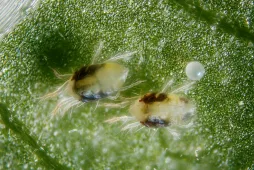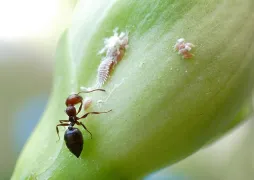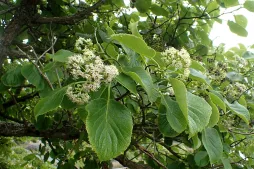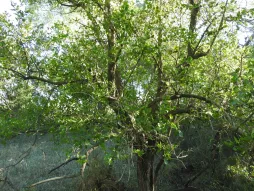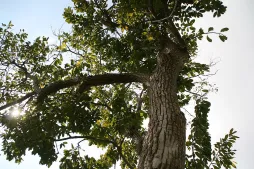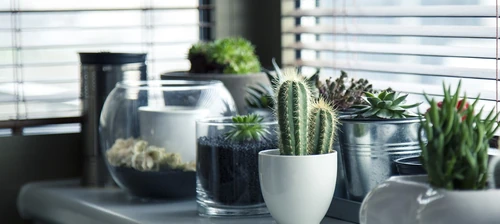Ehretia microphylla, the Fukien tea tree
Legend has it that the goddess Guanyin gave Ehretia microphylla to a Chinese peasant to cure his sick wife. Today, this shrub from the Boraginaceae family is mainly offered to bonsai enthusiasts wishing to expand their collection!
How to recognize Ehretia microphylla?
Ehretia microphylla is an evergreen shrub with a spreading habit. Smaller than ehretia acuminata or ehretia dicksonii, it doesn't exceed two meters in height and the same wingspan. In our latitudes, the plant is mainly grown in pots as a bonsai.
The brown trunk can be straight or curved. The long, slender branches form a sparsely branched crown.
The elliptical or lobed leaves are at best five centimetres long and three centimetres wide. Bright green, they turn dark green with age. Mature leaf blades also show white hairs and dots.
Flowering takes place in summer. The Ehretia microphylla is adorned with white, star-shaped flowers. Their fragrance attracts insects and pollinators.
Next come the fruits, brown or red drupes. Each one contains four seeds.
Ehretia microphylla is not toxic to humans. Quite the contrary, in fact. Its leaves have been used in traditional Chinese medicine for over 2,000 years to treat stomach upsets.
Our maintenance tips
Bonsai leaves tend to return to their normal size when the shrub is not pruned or when its fertilizer is too rich in nitrogen. If your Ehretia microphylla develops leaves that are too large for your taste, remove them and prune it.
Watering
Water only when the substrate has dried on the surface (one or two centimeters).
Use non-calcareous water, such as rainwater or mineral water, at room temperature. Pour it over the soil, avoiding the foliage.
To prevent root rot, remove any water that collects in the dish or planter.
Spray
Dry air favors the appearance of mites and other pests. Mist the foliage of your Ehretia microphylla to prevent invasions and improve hygrometry.
Use non-calcareous water, such as reclaimed rainwater. Tap water is often too hard and leaves marks on the leaves.
Repotting
Every spring, repot your Ehretia microphylla to give it more space.
Obtain bonsai potting soil, such as Akadama, and a pierced pot.
Then prepare your Ehretia microphylla for repotting. You can simply leave the rootball to soak. But if you've decided to prune the roots to renew them, remove the old substrate. Remove overgrown roots with a clean, sharp tool, such as secateurs or scissors. Remove no more than a third of the root volume, so that the shrub can resume growth.
Pour a layer of substrate into your pot. Plant your Ehretia microphylla in the center. Add potting soil and water generously.
For a month after repotting, stop adding fertilizer and reduce the frequency of watering.
Fertilization
To promote the growth of your Ehretia microphylla, apply fertilizer in spring and summer.
Your Ehretia microphylla has fragile roots. Use a solid organic bonsai fertilizer rather than a liquid one.
Prune
To encourage the growth of your Ehretia microphylla, prune regularly.
Prune branches with at least eight leaves. Reduce their size so that they bear only two or three leaves.
Remove dead branches, yellowed leaves and damaged parts.
Cut above a node using a clean, sharp tool.
Pinch
Pinch your Ehretia microphylla during its growing season.
Pinch the ends of branches to densify the plant.
Cutting
Cutting is carried out during the strong growth phase, generally in spring and early summer.
Use a clean, sharp tool to remove a soft branch about ten centimeters long. Cut just below a node to encourage root growth.
Remove the lower leaves. You can also reduce the size of the limbs you keep by half.
Prepare a pierced pot adapted to the size of your cutting. Fill it with a rich, well-drained substrate. You can use potting soil for seedlings and plantations, for example.
Make a pilot hole with a pencil or pick. Plant your Ehretia microphylla. Water to encourage rooting.
Cuttings are more likely to succeed when smothered. Place your pot in a mini-greenhouse or translucent plastic bag. You can also use a pre-cut bottle.
Mist the substrate regularly to keep it moist, and aerate your cutting for a few minutes each day to prevent rotting.
Remove the cover when the first leaves appear.
Remove the cover when the first leaves appear.
Diseases / Threats
Information
| Family | Boraginaceae - Boraginaceae |
| Type | Ehretia - Ehretia |
| Species | Ehretia microphylla - Ehretia microphylla |
| Lifecycle | Perennial |
| Foliage | Evergreen |
| Exposure | |
| Substrat | |
| Planting method |
In pots |
| Categories | |
| Tags |
Flowery Fritillary Small pot |
| Origins |
Central Asia South Asia Southeast Asia |
| Hardiness (USDA) | 11b |
| Leaf color |
|
| Flower color |
|
| Fruit color |
|
Discover plants from the same family














